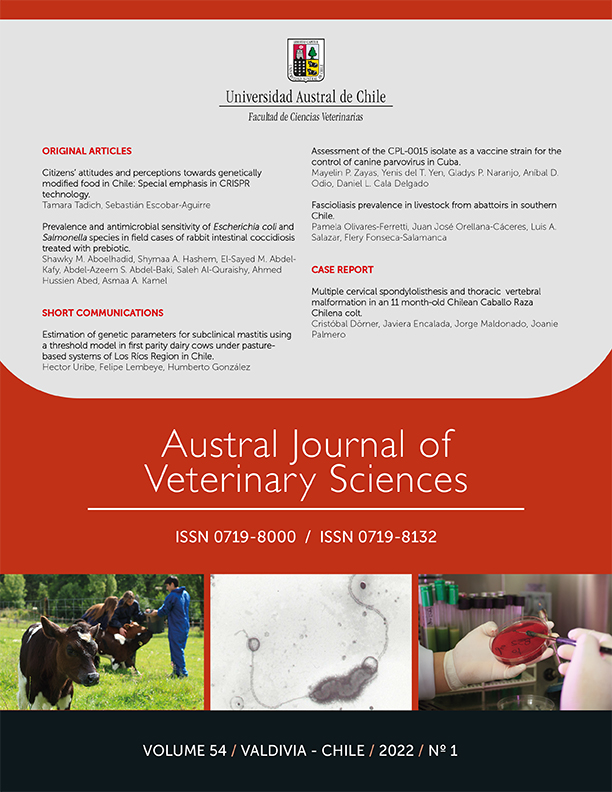Citizens’ attitudes and perceptions towards genetically modified food in Chile: Special emphasis in CRISPR technology
Conteúdo do artigo principal
Resumo
To date, there has been an increase in genome modification biotechnologies that improve production and food security but the process has not been accompanied by the delivery of information about them intended for citizens. This is essential considering that to achieve better health, food security and sustainability these biotechnologies need to be incorporated into production systems. This study aimed to explore perceptions and attitudes of Chilean citizens towards the use of genome modifications with an emphasis on transgenes and genome editing (CRISPR). An electronic questionnaire was applied, and afterwards the results were analysed through descriptive statistics, GLM, Spearman’s correlation and Wilcoxon Signed Rank test. A total of 702 questionnaires were analysed. High awareness of concepts such as transgenic and cloning was reported with CRISPR being the least known term. Most respondents perceived negative effects on health regarding the consumption of genetically modified products, with women having a significantly more negative attitude. Still, a high willingness to use CRISPR for improving animal and human health was reported. When comparing vegetable and animal products that underwent CRISPR or transgenes, the willingness to consume these products was higher for vegetables. The results show that changes in perception can be achieved after providing the definition of CRISPR and transgenic, therefore, consumer education seems to be essential. Science communication focused on making information about genome modification biotechnologies available to citizens could promote more positive attitudes and perceptions and facilitate their future implementation in the country.

